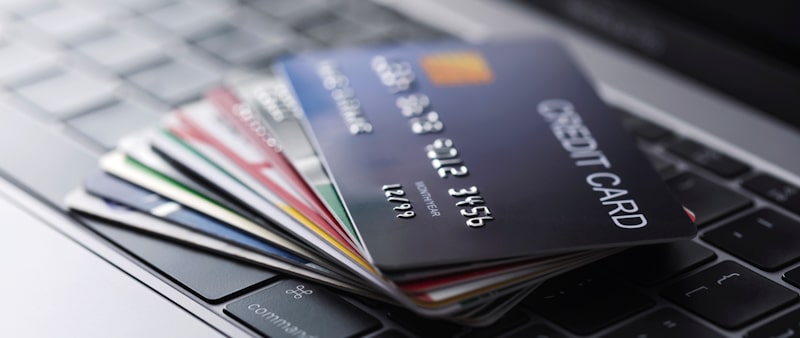

Credit cards are one of the most popular and convenient ways to pay for purchases. But how do they work? In this beginner's guide, we'll explain several questions about how credit cards work, including how they're used, how they're different from debit cards, and how to use them responsibly. We'll also provide some examples to illustrate key concepts.
Credit cards are issued by banks or credit card companies and can be used to pay for purchases at millions of businesses worldwide. When you use a credit card, you're essentially borrowing money from the issuer to pay for your purchase, and you'll then need to repay that borrowed money, plus interest and fees, if applicable.

Many different types of credit cards are available, each with its features and benefits. Some common types of credit cards include:
Credit cards can be a great financial tool if used responsibly. They can help you build your credit, earn rewards, and save money on interest. But how do credit cards work?
When you use a credit card, you essentially borrow money from the card issuer, and the issuer then bills you for the amount borrowed, plus interest and fees. Here's how it works:
Credit cards offer a lot of flexibility and can be an excellent tool for managing your finances. However, there are also some potential downsides to using credit cards. Understanding the pros and cons of credit cards before deciding whether they suit you is essential.

Speaking of fees...
You are charged a small fee when you use your credit card. This is how credit card companies make their money. The costs can vary depending on the company, but they typically range from 1-3% of the total purchase price. For example, if you buy something for $100, you may be charged a $1-$3 fee.
Some credit card companies also charge annual fees, typically around $50-$100. These fees help keep your account up and offset customer service and fraud protection costs.
While credit card fees may seem small, they can add up over time. Knowing all the costs associated with your credit card is essential to make the best financial decisions for your situation.
Comparing credit cards can be a confusing and daunting task. Many different types of credit cards are available, with varying interest rates, annual fees, and rewards programs. It can be difficult to know how to compare all of these factors and pick the right card for you.
Here are a few tips on how to compare credit cards:
Comparing credit cards can be confusing, but it doesn't have to be. By taking the time to figure out what you want and need in a credit card, you can find the perfect card for your financial situation.
There are many different places to shop for credit cards, and you can go to your local bank or credit union or shop online. There are also many kinds of credit cards available, so it is essential to compare and contrast before you decide which one is right for you. Consider the interest rate, annual fee, and rewards program when shopping for a credit card. You should also ensure that the card issuer reports to the major credit bureaus.
Credit cards are like loans: you're borrowing money from the bank that issues the card, and you'll need to pay back what you've borrowed plus interest.
On the other hand, debit cards are linked directly to your bank account. So when you use a debit card, you're spending your own money.
One of the main advantages of credit cards is that they can help build your credit history. A credit card can help improve your credit score if you make your payments on time. This can be helpful if you're looking to take out a loan in the future. Debit cards, on the other hand, don't impact your credit score.
Another advantage of credit cards is that they offer protection against fraud. If your card is stolen or used without your permission, you can usually get your money back from the bank that issued the debit card. With debit cards, however, you may have to fight to get your money back if there's fraud involved.
So which type of card is right for you? A credit card may be the better choice if you're looking to build your credit or want extra protection against fraud. But if you're trying to stick to a budget, a debit card can help you avoid debt.
Both credit and debit cards offer a certain level of protection against fraud, but there are some key differences to be aware of.
With a credit card, you're borrowing money from a lender. If someone uses your card without your permission, you're not responsible for the charges as long as you report the fraud promptly. The card issuer will then investigate and refund any fraudulent charges.
Debit cards are different. These cards are linked directly to your bank account, so if someone gets ahold of your card information, they can access your account and start making withdrawals. And depending on how quickly you report the fraud, you may be held responsible for part or all of the money taken out of your account.

Secured credit cards are a type of credit card backed by a deposit you make with the issuer. The deposit acts as collateral in case you default on your payments, and it also serves to limit the amount of credit that you can access. With a secured credit card, you can get a credit limit equal to your deposit amount. So, if you put down a $500 deposit, you'll have a $500 credit limit.
Your minimum payment is the smallest amount you can pay each month to keep your account in good standing. This amount is typically calculated as a percentage of your balance plus any interest and fees accrued. For example, if your credit card balance is $1,000 and your minimum payment is 3%, you'll need to pay at least $30 monthly.
You may be charged a late fee if you don't make your minimum payment. Additionally, your issuer may report your late payment to the credit bureaus, which could hurt your credit score. In extreme cases, your issuer could even close your account. So it's essential to always make at least your minimum payment on time.
A credit card bill is a statement that shows how much money you owe on your credit card after some time, typically one month. The bill will also show any payments or credits that have been applied to your account and any interest or fees that have been charged. Your credit card company will use the information on your bill to calculate how much you owe each month.
You'll be charged interest on the outstanding balance if you don't pay your bill in full. Interest rates can vary depending on the type of card and the issuer, but they're typically relatively high - often 20% or more. That's why it's essential to pay your credit card balance in full monthly if possible.
Typically, you'll have a grace period of 21-25 days after the close of each billing cycle, during which you can pay your bill without incurring interest charges. However, if you carry a balance from one month to the next, interest will be charged from the date of purchase.
Most credit card issuers offer online bill payment services that make it easy to pay your bill on time. You can also set up automatic payments, so your account is paid each month automatically.
Paying your credit card bill on time is essential to avoid costly interest charges because it's one factor used to calculate your credit score. So paying your account on time can help you maintain a good credit rating.
Every time you use your credit card, you essentially borrow money from the issuing bank. The issuer then reports your activity to the credit bureaus, which is how your credit score is determined. So, you can gradually improve your credit score by using your credit card responsibly and making timely payments. Additionally, having a good mix of different types of credit (e.g., revolving, installment, etc.) can also help to boost your score.
Of course, using credit cards wisely is essential to avoiding letting your balance get too high. If you carry a balance from month to month, you will likely have to pay interest on the outstanding amount. If you miss payments or default on your debt, your credit score will also be negatively affected. So it's essential to use credit cards responsibly to maintain a good credit rating.
Your credit limit is the maximum amount of money you can borrow from your credit card issuer. The issuer sets this limit based on factors like your credit history, income, and debts.
You're essentially borrowing money from your credit card issuer when you get a cash advance. The process is usually pretty simple: You go to an ATM or bank and withdraw cash up to your credit limit. The interest rate on a cash advance is generally higher than the purchase rate. And there's also a fee, typically around 5%. So if you withdrew $100 as a cash advance, you'd owe at least $105 plus any additional fees from the ATM. And you'd start accruing interest on that $100 immediately.
The most significant risk of a cash advance is that it can add to your debt load very quickly. The high-interest rates and fees mean that your debt will snowball if you cannot pay it off immediately. That can easily lead to a situation where you're struggling to make your credit card payments each month.
Another risk is that cash advances can be challenging to repay if you don't have a plan. Because the interest accrues immediately, it can be hard to catch up if you get behind. And if you're already having trouble with your credit card payments, taking out a cash advance will only worsen things.
A balance transfer is a process of transferring the balance of one credit card to another credit card. This can be done for various reasons, such as consolidating debt or taking advantage of a lower interest rate. Balance transfers generally have a fee associated with them, and the interest rate on the new credit card will usually be higher than the interest rate on the old credit card.
To transfer a balance from one credit card to another, you will need to contact your new credit card company and provide them with the information for your old credit card. You will also need to specify how much you would like to transfer. Once the transfer is complete, you will owe the balance on the new credit card.
There are a few things to remember when considering a balance transfer.
If you are considering a balance transfer, be sure to do your research and compare offers from multiple credit card companies to find the best deal for you.

